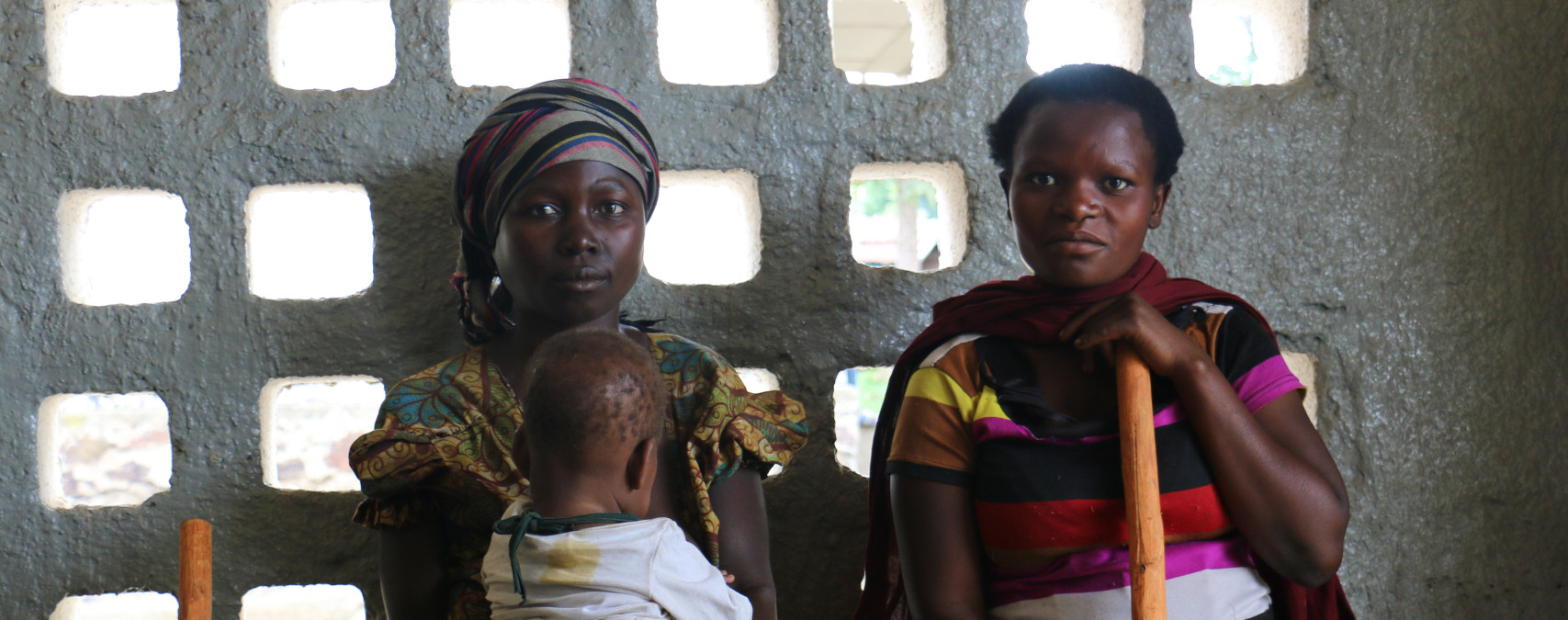"The small garden next to my house improves my food production and income," says Immaculée from the Democratic Republic of Congo
Published: Mar 1, 2017 Reading time: 4 minutes Share: Share an articleThe open space in front of the health centre in Bulenga of eastern Democratic Republic of the Congo is very lively today. Dozens of colourfully dressed men and women are waiting for People in Need’s distribution of agricultural tools. The villagers will use the tools in their newly established kitchen gardens where they will soon plant seeds that were also donated by People in Need (PIN).

The distribution is going well and the social event is full of joy and smiles. Those who already received their tools, like hoes or watering cans, are trying them for the first time, while others are concentrating to hear their name on the list of beneficiaries.
Trainings, seeds, and tools to tackle food insecurity
The 30-years old Immaculée Mubagwa is describing her situation while holding her new gardening hoe. "We are going through a very difficult time and are barely able to feed our families. My husband is a seasonal worker and if he does not have work, then we do not have money," says the mother of 5 children. "One of my children is seriously ill," she adds. Immaculée decided to change the dismal situation of her family and joined the kitchen gardening project.
During the past few months she learned new agricultural techniques from a demonstration kitchen garden, which she now replicates in her own garden near the house. One of her co-workers in the demonstration garden is 25-years old Justine Bienfait. "I was already married but my husband left. Now I am pregnant with another man’s child and he has also disappeared so now I live with my parents and unfortunately I do not have a job," Justine explains.
Justine’s motivation to join the project is the same as Immaculée’s. "I really need to receive seeds to produce some more food that I will use to feed my family and sell to buy other things," she says. "In the trainings I learned how to plant different crops in lines and how to start my own garden," says Immaculée. In the demonstration garden they have already harvested the first amaranth and now they are starting with their own gardens near their houses with the seeds delivered by the People in Need team.
"I have already planted amaranth, chili, and squash in my own garden and they are starting to grow," says Justine. The delivery of tools came just in time. "This hoe costs 3 dollars in the market and I have no money to buy it, which is why it is such a big help for me. Now I know from the training how I should cultivate my garden. Watering cans will help us to water our plants," says Immaculée.
#~gallery-1445~#
Help for the most vulnerable
All the agricultural activities are part of a project aimed at reducing food and nutrition insecurity in the area and all the beneficiaries are selected by a community committee. "Only women headed households, families without access to land, households with at least two children under five or families with malnourished child can participate in this activity," says Community Mobilizer Bernard Mulamba.
A similar program is also running in Bwisha where the community, together with People in Need, prepared a demonstration kitchen garden for 53 beneficiaries. After the first harvest of amaranth in the demonstration garden, some of villagers have already plant their seeds. "The sun is too powerful now, so I stored the seeds and I am waiting for weather more suitable for planting," says one villager.
The whole intervention funded by People in Need, Club of Friends, and Real Aid public collection works through an integrated approach. It combines the community-based management of acute malnutrition, including prevention and treatment of malnutrition with agriculture related interventions like kitchen gardening and intercropping with integrated pests management and raising Guinea pigs in the same areas.
The aim is to reduce the number of malnourished children under five and women of childbearing age (15-49) in the Minova Health Zone. This will be achieved through improvement of dietary diversity, decreasing food insecurity, and improving the hygiene and nutritional practices of the most vulnerable households.



